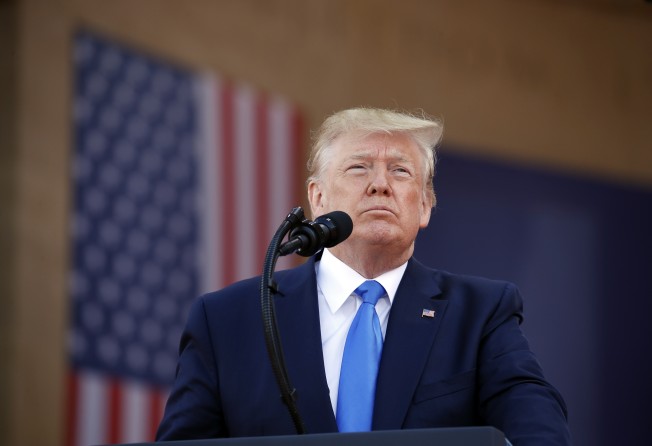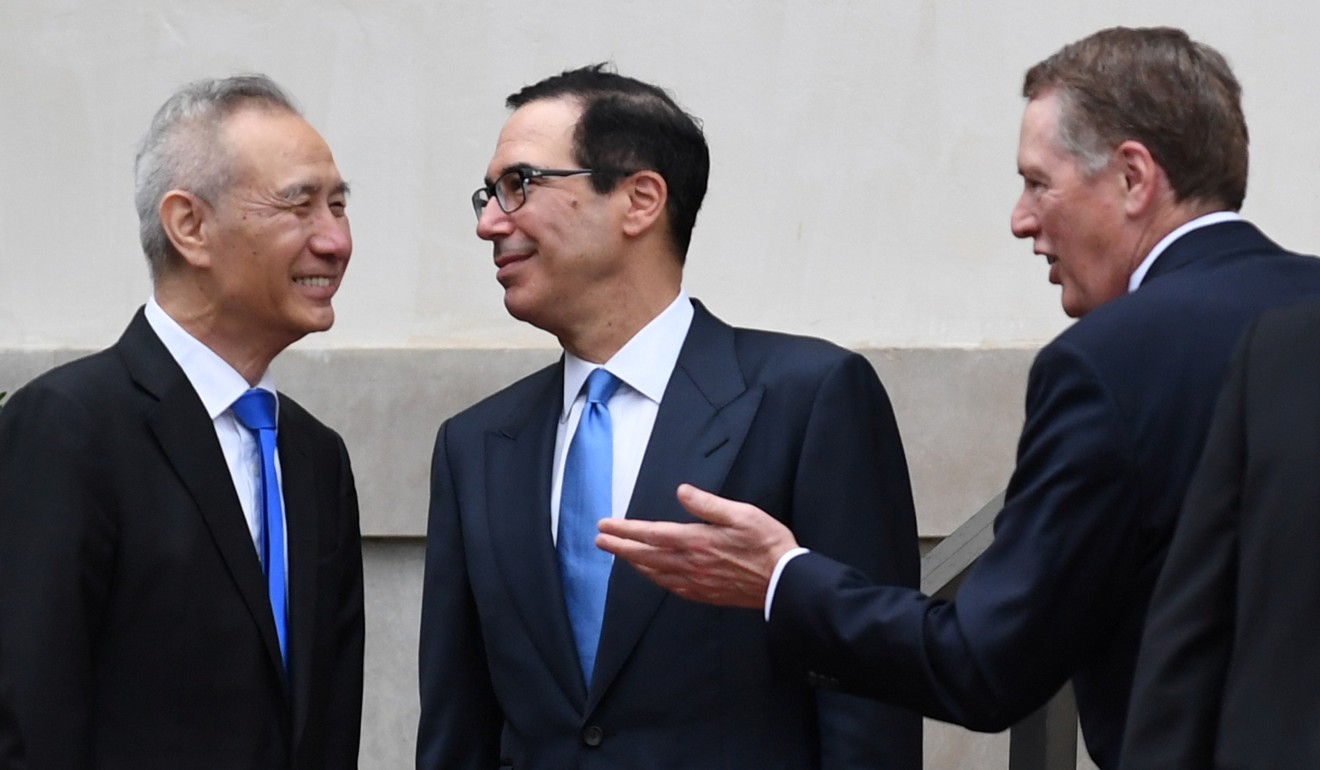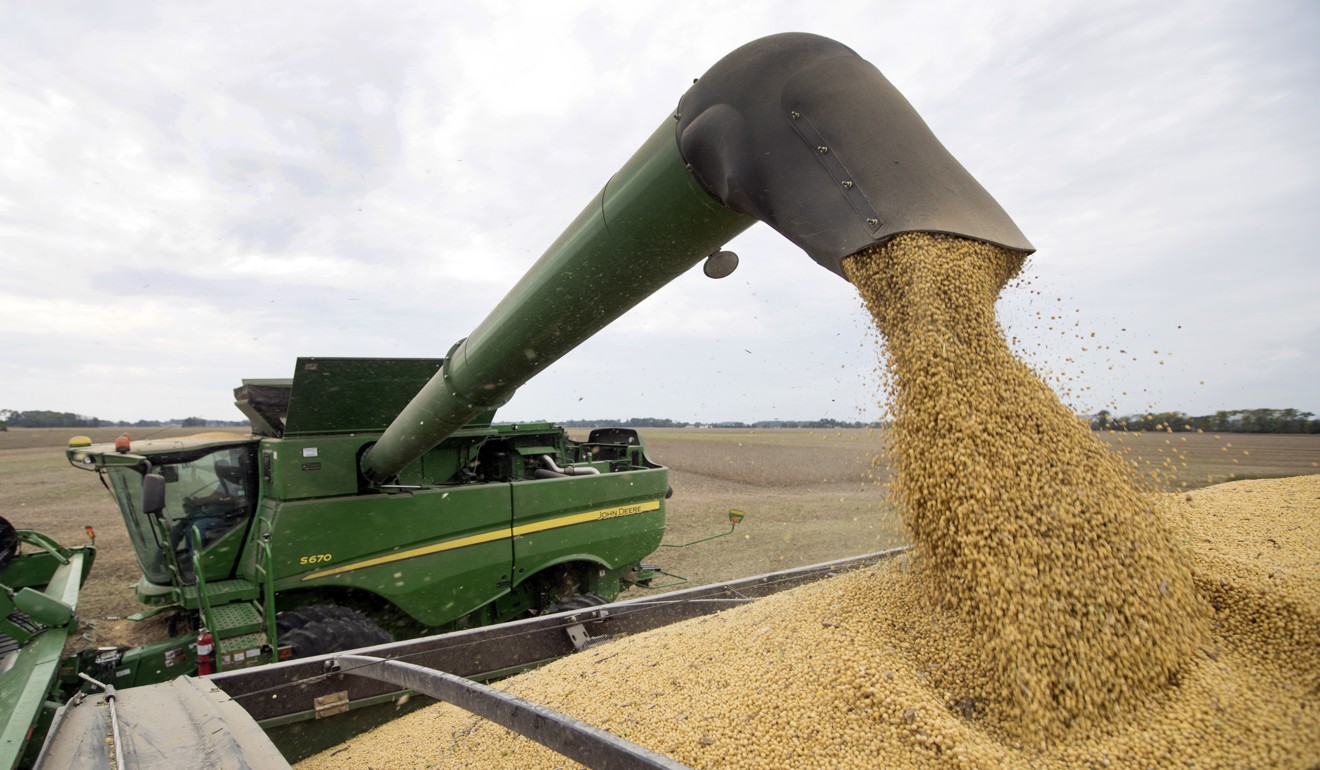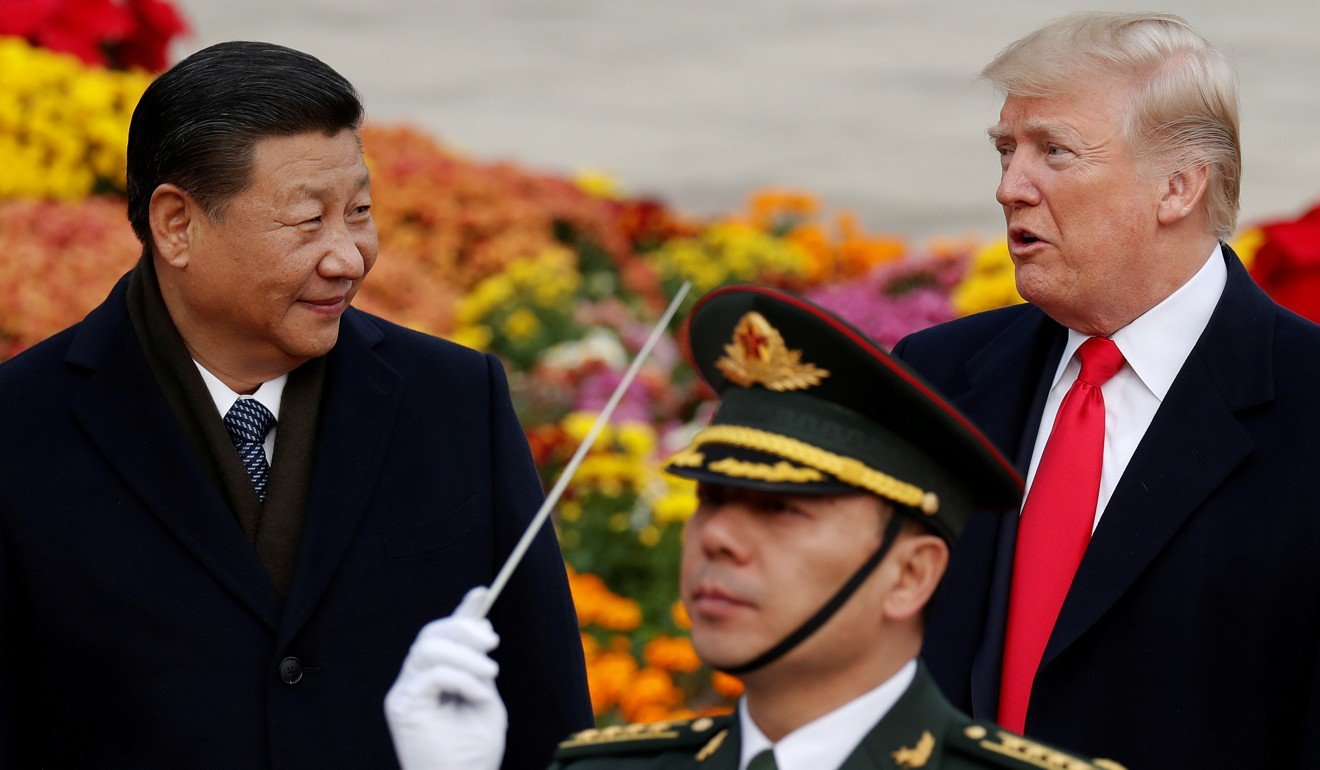Donald Trump ‘probably planning’ for tariffs on all Chinese goods after G20
- US president’s move, if implemented, would dramatically escalate his months-long trade war with Beijing
- Decision on goods not already subject to 25 per cent taxes would occur ‘over the next two weeks, probably right after the G20’, he says

US President Donald Trump said on Thursday he is “probably planning” to slap tariffs on the remaining US$300 billion of untaxed Chinese imports some time after he meets with Chinese leader Xi Jinping at the G20 in late June.
The decision to put punitive duties on Chinese goods not currently subject to 25 per cent taxes would be made “over the next two weeks, probably right after the G20”, Trump told reporters at a D-Day ceremony in Europe.
“One way or another, I’ll make that decision after the G20,” said Trump, who personally estimates the value of goods to be taxed at US$325 billion, contrary to his trade chief's figure of around US$300 billion.
“I’ll be meeting with President Xi and we’ll see what happens, but probably planning it sometime after G20,” Trump said, following speeches he and French President Emmanuel Macron delivered in Caen, France.
The meeting between Trump and Xi is expected to take place on the sidelines of the annual summit that is to be held this year in Osaka, Japan, on June 28 and 29.
However, analysts said mixed signals from Trump make it difficult to determine where the tariff war is headed.
Even as he restated the tariff threat, Trump’s comments indicated “a continued willingness to have dialogue with China, and that he wants to be personally involved,” said Scott Kennedy, a senior advisor at the Centre for Strategic and International Studies.
“That said, I don’t think markets ought to take this as a clear sign that negotiations will re-start and there won’t be new escalatory measures,” said Kennedy, a specialist in China’s economic policy.
Amid a breakdown in trade talks between Washington and Beijing in May, the Trump administration increased tariffs on Chinese goods, bringing the total value of imports subject to 25 per cent duties to US$250 billion.
China has responded to each escalation since the first tranche of US tariffs took effect last July, most recently increasing duties on US$60 billion of US imports.
In a recent white paper, China’s State Council charged that the US “should bear the sole and entire responsibility” for the recent setbacks in the negotiations, saying that “the more the US government is offered, the more it wants”.
Trump’s trade chiefs, on the other hand, have blamed the breakdown on attempts by China’s negotiators to “renege” on a number of fundamental commitments.

With trade negotiations on ice – there have been no face-to-face meetings in almost a month – the US administration has turned up the heat on a number of other fronts, including moving to put Chinese telecommunications giant Huawei Technologies on an “entities blacklist”, much to Beijing’s ire.
Also likely to loom over the two leaders’ meeting in Osaka this month will be a speech from Vice-President Mike Pence on US-China relations, to be delivered on June 24 at the Washington-based Wilson Centre, the think tank confirmed on Thursday.
Citing two sources familiar with the matter, CNBC reported that the speech would condemn Beijing's record on human rights and religious freedom.

A speech delivered by Pence – one of the administration’s most vocal China hawks – in October castigating Beijing’s human rights record and model of globalisation heralded a significant downturn in already tense bilateral relations.
“If you’ve got hostile speeches coming from senior members of the administration then that definitely makes it harder to negotiate,” said David Dollar, senior fellow at Brookings’ John L. Thornton China Center.
In light of Trump’s recent restatement of his readiness to push ahead with tariffs on the entirety of Chinese imports, Dollar, the US’ former economic and financial emissary to China, said he “wouldn’t be shocked” if Xi ended up declining to meet in Japan.
“They haven’t negotiated anything in advance, so going into the meeting is risky for [Xi],” said Dollar, referring to the lack of any face-to-face bilateral discussions since talks stalled on May 10. “It’s possible they come out and President Trump says ‘China hasn’t given into all our demands so we’re moving ahead [with the tariffs]’. And then it makes President Xi look like a poor negotiator.”
The office of the US Trade Representative has begun preparations for the tariffs on the remaining US$300 billion of untaxed goods, and will begin hearings on June 17 to gather testimony from businesses seeking exemptions from the punitive duties.
Final written testimony and rebuttal will be due within seven days of the hearings’ conclusion.

With the hearings themselves likely to progress over several days, that could mean the USTR would be in a position to draw up its final list of goods to be subject to tariffs around the same time that Trump and Xi are to meet in Japan.
As with previous hearings held for each round of tariffs, the USTR is expected to hear some firm opposition from the business community.
Companies have used earlier hearings to highlight the disruption – sometimes irreversible – that tariffs may bring to supply chains, increasing the burden on US consumers.
Goldman Sachs has estimated that the cost for US companies of tariffs on the remaining US$300 billion of Chinese imports could be as much as a 6 per cent decrease in earnings, CNBC reported.
While the tit-for-tat escalation of tariffs rages on, Dollar, who recently returned from meetings in Beijing with a number of “technocratic people in the economic ministries”, said his impression was that the Chinese were “digging in for a long trade conflict.”
“They would prefer to make a deal with the US but they’re increasingly pessimistic and they’re ready to do what they have to do to keep the economy going solidly,” he said. “They can take a blow.”
Such would be Xi’s mindset going into the meeting with Trump in Japan, Dollar added. “If it seems that he’s desperate for a deal, that can’t work out well for him.”
Additional reporting by Gabriella Orr of Politico and Robert Delaney